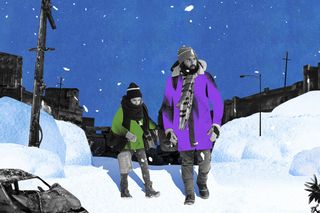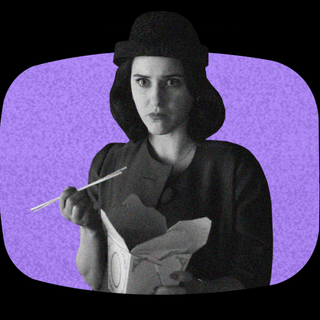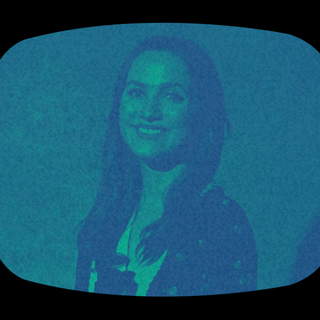
‘Station Eleven’ Reimagines How Kinship Can Look During a Crisis
The role of community can be pivotal in rebuilding our post-pandemic world.

It has been almost two years since the Covid19 pandemic wrecked our world. While these years have left us mostly distraught and perplexed, it has also managed to churn out various works of fiction that attempt to better understand the crisis that we are going through.
But despite the ubiquity of the crisis, most of these stories offer nothing new. They tell the same tales of disease and collapse, the end of the world, a possible totalitarian reign, and cynicism. Examples include Adam Mckay’s Don’t Look Up, Bo Burnham’s Inside Out, and now Hanya Yanagihara’s To Paradise —all of which display a sense of banal resignation.
Such narratives, instead of feeling prescient, fill one with anxiety. Yet fiction’s imaginative boundaries must be employed in ways that teach us lessons in building hopeful worlds. It is here that Patrick Somerville’s recent adaptation of Emily St. John Mandel’s Station Eleven fills the gap.
In Station Eleven, we find the survivors of a pandemic in a world where civilization as we know it doesn’t exist anymore — and thus begins a reimagination of what kinship and community can look like beyond the boundaries of what we knew before.
The narrative starts with a performance of King Lear, during which one of the actors collapses and dies on stage. In the hubbub that follows, Jeevan, an audience member, finds himself agreeing to walk eight-year-old Kirsten home. It turns out that it’s a deadly flu that is killing everyone and, while Jeevan only expected to play babysitter for a while, he and Kirsten end up together as partners in survival.
What we find in this unlikely dynamic is an attempt at reimagining the meanings of kinship. While Kirsten and Jeevan are neither family nor strangers, the intimacy of witnessing and surviving the end of the world necessitates the need for creating newer ways of looking at shared relationships. “We need new words,” declares a woman in one of the scenes, referring to her relationship with the man she found herself surviving the first 100 days with.
In being collectively stranded, the hierarchies of age and gender roles fall away; Jeevan and Kirsten are both equally responsible for each other’s survival, and each other is all they have. Similarly, we find a troupe of nomadic actors, who call themselves the Traveling Symphony and perform Shakespeare to scattered settlements, reconfiguring the meanings of family. It is an intersectional community of Black, Brown, and disabled individuals, who sustain and provide for each other.
Community is also demonstrated in Chicago’s department-store-turned-maternity-ward in the show. Several women in labor give birth after the end of the world with only one doctor in sight and Jeevan, despite not being one, assists anyway. Some mothers survive, and some don’t. But there are no orphans, as we find people banding together to raise and care for each other, thereby expanding the meanings of mothering and motherhood.
Related on The Swaddle:
Why Random Acts of Kindness Are Good for Us
Something of a queer utopia forms in all these evocations. These relationships exist outside of a Munozian “straight time.” Queer theorist José Muñoz argues that “straight time tells us … the only futurity promised is that of the reproductive majoritarian heterosexuality.” It is a future that privileges and aspires towards the creation of hetero-patriarchal family units. However, in challenging and recalibrating the foundations of kinship, Station Eleven’s futurity is a futurity of queer utopian possibilities, one where the community is foremost, and kinship moves beyond the limits of biogenetically related kin.
It is significant to gather these lessons on the complication of family structures to understand our own worlds. While there is an active reimagination of care work as essential in the show, it is critical to also witness it in the work of our frontline, essential service, and healthcare workers. When family members could not meet their kin and close ones in hospitals during the Covid19 pandemic, it was healthcare workers who bore witness to their deaths; when communities could not be there for their dead, cremation workers performed last rites.
But as they perform this labor, in the name of “essential services,” the state and society do not reciprocate; countless ASHA workers have died because they are underpaid and unprotected, and Dalit crematorium workers continue to remain oppressed by their caste-based occupations.
Our house helps, our waste pickers, and all the unpaid mothers of the world — perform the most fundamental jobs of our existence. They feed us, clean for us, and care for us. Without their labor, our bodies, and the social body of the state, will collapse. But while the burden of their work means life and death for the community, where are the words that capture this intimacy? We must thus think critically of the limitations of our own language in defining our relationships with the invisibilized who care for us.
It is important to acknowledge that there is merit in leaving these relationships undefined for the world systems at large; it keeps us from building meaningful, intimate, close bonds of co-existence (if there is no language, does it exist?). After all, isn’t it this denial of community — a denial that is also anthropocentric and, therefore, ignorant to the spillage between the intimacies of human and animal contact — that a zoonotic disease was able to spread to the extent it has?
While exclusion, deprivation, dehumanization are more than just themes of a fictional narrative, so are the exercise of hope, love, and kinship. Station Eleven tells us that even as the world ends, there will be community and, within that community, there will be hope.
Ankita Dhar is a freelance writer from Assam. Her writing mostly revolves around digital sexual cultures, popular fiction, and cinema. Her digital art can be found at @ankitaaab.
Related


‘The Marvelous Mrs. Maisel’ Explores How We Can Never Completely Know Anyone
